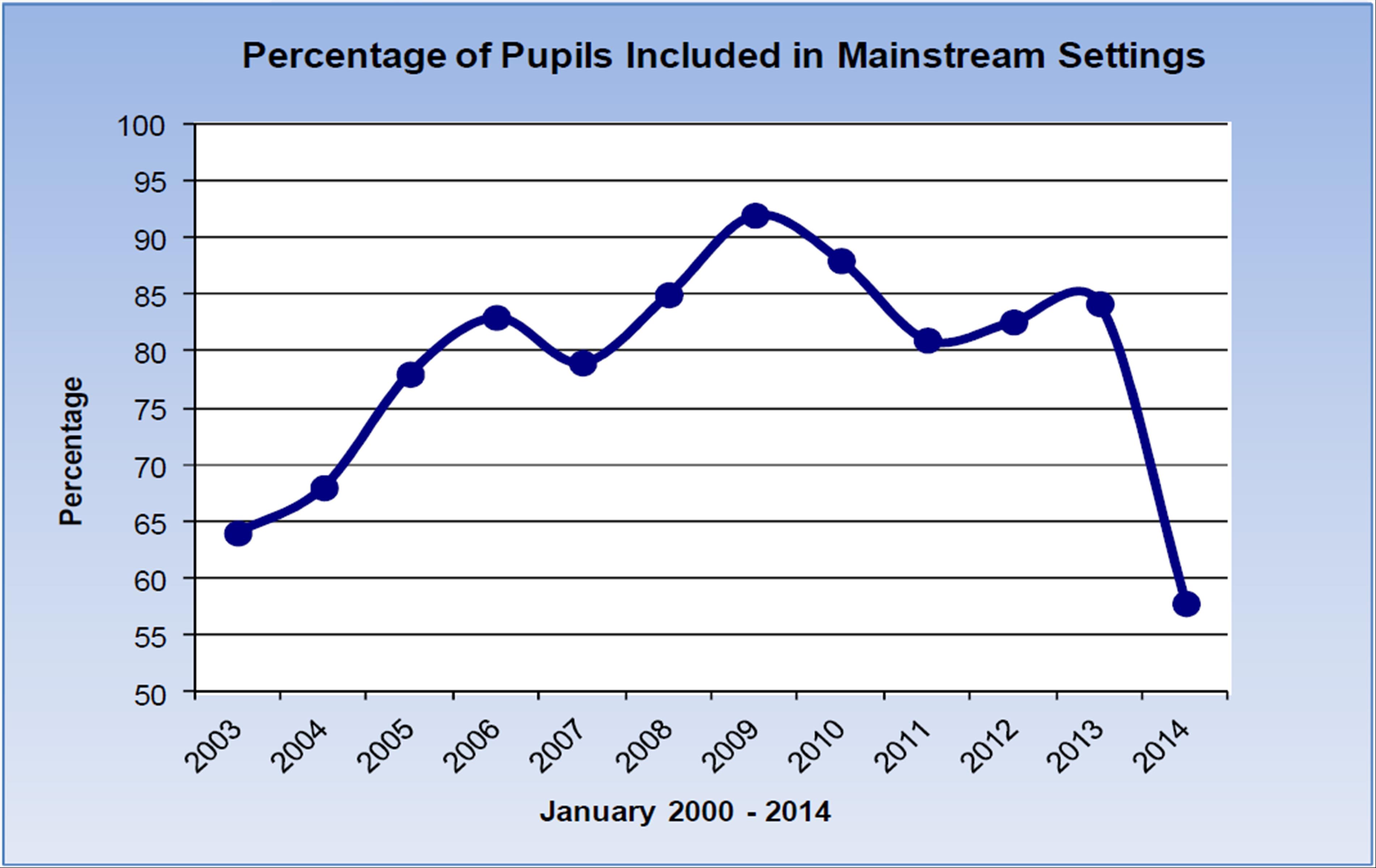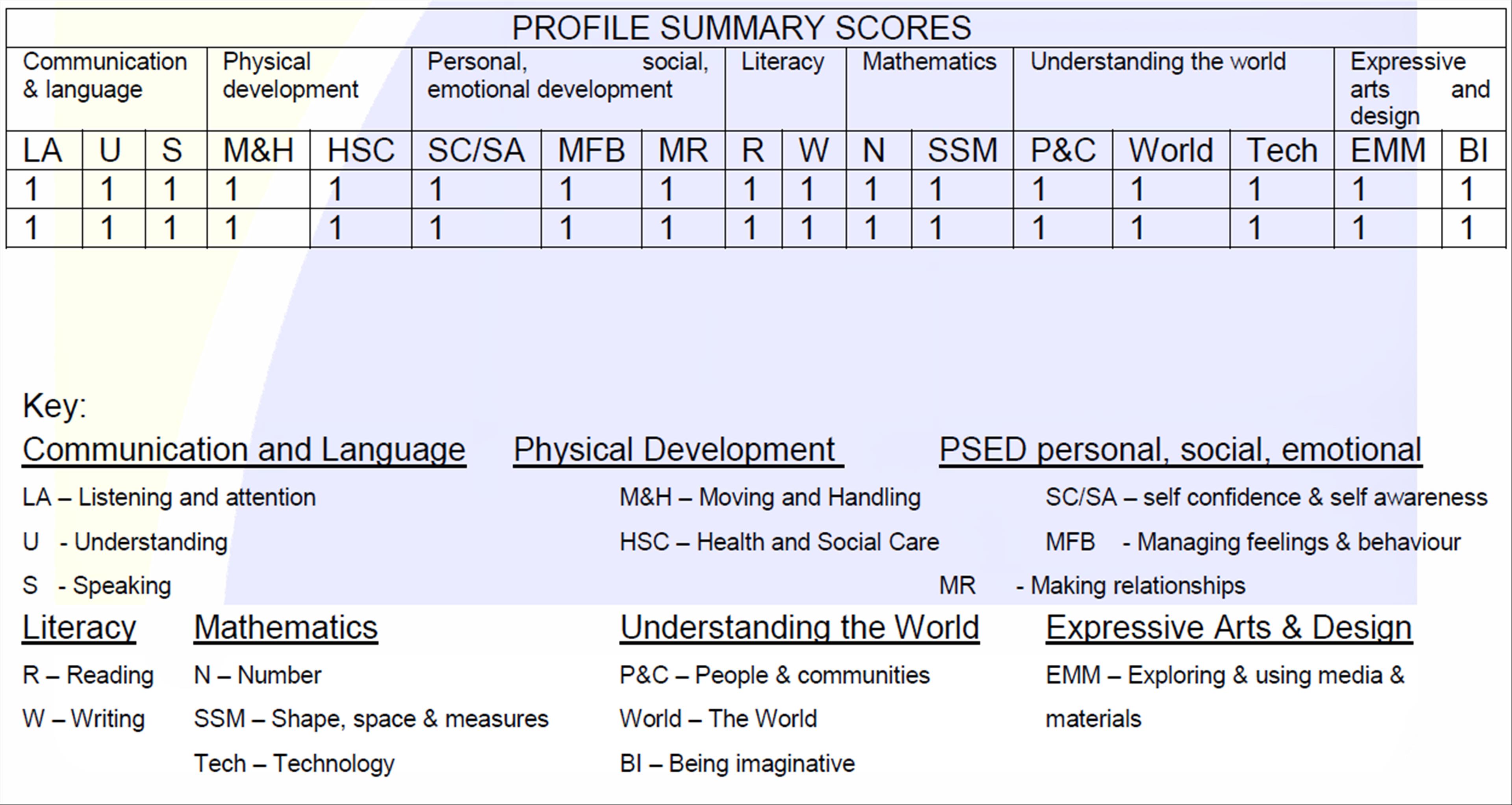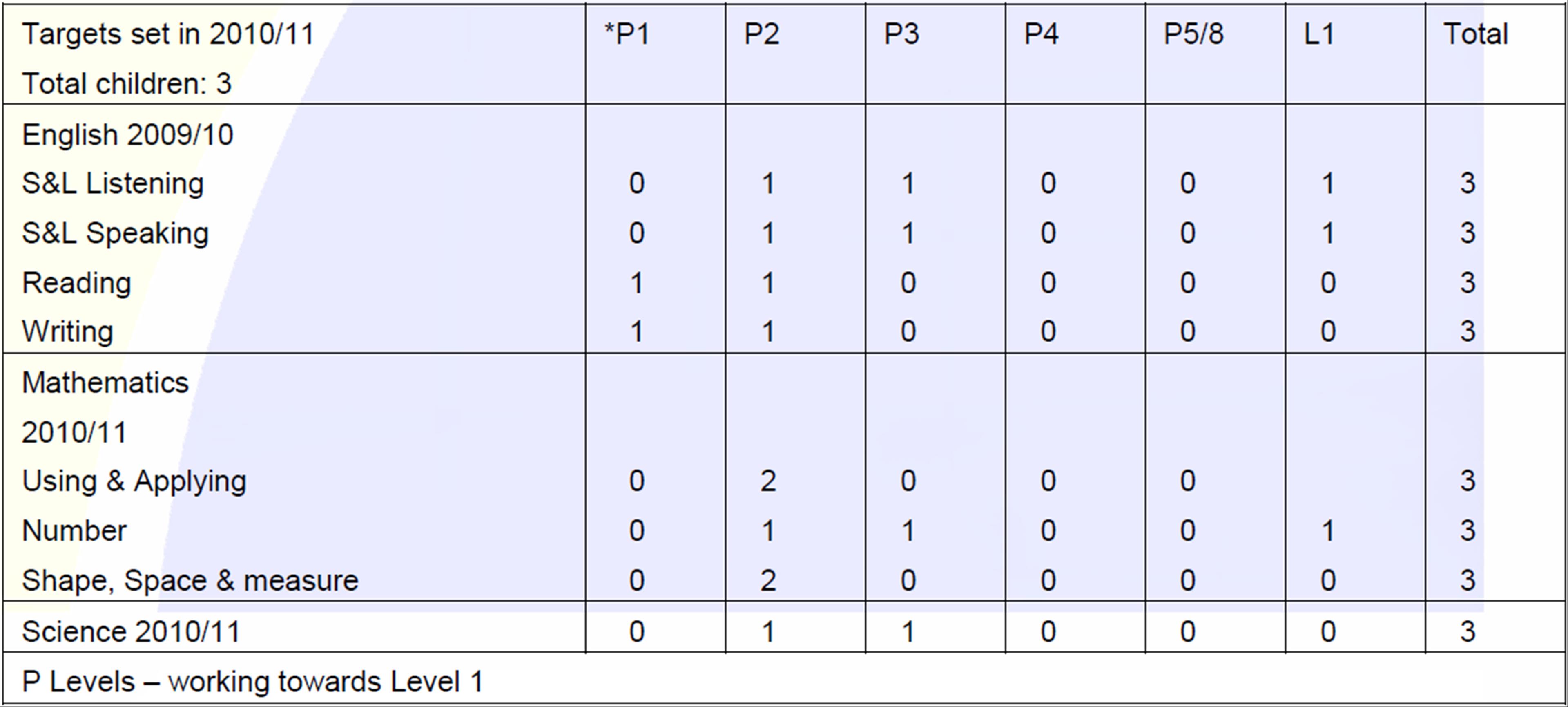Vranch House is a centre for the treatment of over 2,000 outpatients with physical difficulties, a provider of various therapies throughout Devon and an independent Day School in Exeter for children with significant physical difficulties.
Find out more...Last updated: 26/07/2024
Headteacher's Report 2013
VRANCH HOUSE SCHOOL PROFILE 2013
1) What have been our successes this year?
- We received our first annual monitoring visit from Devon County Council Education Advisors who provided us with very positive feedback and advice.
- Some of our older children were lucky enough to spend a residential weekend at The Calvert Trust with members of staff and everyone had a great time.
- Follow your Dreams Charity returned to provide the ‘dreams' for the children, which ranged from Mr Tumble toys to theatre tickets.
- Continuing our links with HCPT The Pilgrimage Trust who take some of our children each year on a fun pilgrimage to Lourdes
- Links continue between the charity Whizz-Kidz and ourselves, which has included football skills and powered wheelchair skills workshops which are held on an annual basis during "Whizz-Kidz week" in June.
- We continue to work successfully with Exeter University and have also been welcoming teaching students for introductory visits from Bath Spa University during this year. Exeter College students also attend on a regular basis as do Peninsula Medical students.
- Class visits during this year included the Donkey Sanctuary, Teignmouth Pier for a party, local parks and areas of interest.
- We continue to support the Sign2Sing charity as we have enjoyed doing for the previous two years.
- We all enjoyed a visit, demonstration and workshop from the Otters Wheelchair Basketball Team during the Summer Term.
Chart: Inclusion

2) What are we trying to improve?
Develop strategies to further support the acquisition of independent living skills Further develop curriculum resources.
Embed agreed phonics approach throughout school.
Improve IEP target setting, support and assessment within all areas of school.
3) How much progress do pupils make?
Pupils at Vranch House School make good progress when their baseline achievements are taken into account. The following section describes the results for Foundation, Key Stage 1 and 2 assessments during 2012/13. The results are compared to targets set two years previously.
Foundation Stage Assessment
The results for the Foundation Stage Assessment for the 2012/13 academic year are different to previous years as the reporting format has changed. There are now only three levels of assessment: emerging (1) expected (2) and exceeding (3). We had two end of EYFS pupils in school this year, both on shared placements. Their results are displayed below.

Our two EYFS pupils are working within the emerging range for all Early Learning subject areas and goals.
Their future targets for the end of Key Stage 1 (2014/15) are set out below and represent challenging targets of at least one level of progress.

National Curriculum Results for School Year 2012/2013
Review of Targets set for Key Stage 1 Assessment for Year 2012/13
Targets were set for 3 Key Stage 1 children for the academic year 2010/2011. Since these targets were set one of these children has moved to mainstream education.

Of the remaining two pupils, one achieved all targets set for them across all subjects and exceeded their targets for reading, writing and Science. Whilst the other pupil exceeded all targets set across all subjects.
Future Target for Key Stage 1 Assessment for year 2016/2017

These targets represent at least one level of progress and are considered to be challenging. Both children are full time at Vranch House School.
Targets for Key Stage 2 Results
At the time these targets were set (2008/09) six pupils were assessed.

Results at the end of Key Stage 2

4) How have our results changed over time?
- Our pupils continue to make excellent progress when taking their physical and/or medical difficulties into account. We are currently using Durham target setting (cemcentre.org.uk) which are based upon Progression Guidance (DCSF 2009).
5) How are we making sure that every child gets teaching to meet their individual needs?
- Individual IEPs linked to statement of special educational needs and annual review, with a focus on personalised learning, individual needs and life skills development.
- Individual IEP targets included across all planning for class and group work, using a multi-professional approach.
- Formative and summative assessment including; Pre-entry assessment, Early Years Foundation Stage Curriculum profiles, assessment for learning Key Stage 1 and 2 assessment, annual assessment of National Curriculum and P Scale levels and sub levels, annual school report, annual and interim review reports.
- Annual monitoring of pupil progress using Durham data analysis.
- Moderation of individual pupil assessment, including links with mainstream schools.
- Regular meetings between staff to ensure children's needs are met.
- Targeted curriculum.
- Visits from Educational Psychologist and LA Advisory Teachers as necessary.
- Personal Education Plans for children with additional and complex medical or physical needs.
- Music therapy for some children, as appropriate.
6) What have pupils told us about the school, and what have we done as a result?
- Pupils have enjoyed the interactive displays in the corridors and we are continuing to develop an interesting indoor environment.
- There is a school council through which pupils have an opportunity to contribute towards ideas and decisions. For example the school council chooses the Christmas Play each year and helps to plan the Christmas Party.
- School Council Members take turns to show visitors around school, when possible
- We have been encouraging pupil voice across the school community.
7) How do we make sure our pupils are safe and well supported?
- School nurse on duty at all times and good staffing levels.
- Pupils are encouraged to let staff know if they have any problems.
- Regular clinics held at school: paediatric, orthopaedic, orthoptic, audiology and wheelchair clinics.
- Children's diets monitored.
- Effective links between home, respite, transport and shared placements to ensure up to date knowledge on dietary, behavioural, medical or communication needs are shared.
- Effective induction of new staff.
- Provision of healthy snacks at break times.
- Good standard of moving and handling, including regular updates and training.
- Comprehensive health and safety policy with regular premises checks.
- Closed circuit security cameras outside the building.
- Good security procedures - registration of visitors, car parking permits.
- Regular fire drills.
- High levels of investment in buildings and equipment and regular maintenance.
- Safeguarding policies in place and a high level of staff awareness.
- Regular child protection updates.
- Liaison with mainstream schools regarding issues such as attainment, moderation and attendance.
- Secure boundaries around school.
- Visitors to school informed re policy on use of mobile phones in school.
- Monthly support staff meetings to raise concerns or issues.
- A Staff Governor who provides an easily accessible link between staff and management. The Staff Governor represents the views of everyone at support and governors meetings.
8) How do our absence rates compare with other schools?
The total number of pupils of compulsory school age on roll for at least one session - 18.
Percentage of pupil sessions (half days) missed through authorised absence - 11.05% and through unauthorised absence - 0.13 %.
The authorised absence figure is higher than for the previous year (10.3% authorised and 0.15 unauthorised). This reflects the complex medical needs of some of our pupils and represents a fourth year of increase. The results for authorised absence, includes pupils who have received surgery during the year as well as those with complex medical needs. The number of pupils in school with complex needs has been increasing. This data is comparable with national data for special schools for the years 2011-2012 which are 9.6% and 2%. The 0.13% unauthorised absence is due to late arrival in school due to unavoidable transport difficulties. (data taken from DfE Statistical First Release published in March 2013)
9) What activities are available to pupils?
- Broad and balanced curriculum.
- Music therapy sessions for individual children.
- Outdoor nature trail and classroom including tracker mobility device.
- ICT - children individually assessed and given full access to ICT with fully accessible Learning Resource Centre.
- Swimming / hydrotherapy.
- P.E. and Swimming badges/certificates (as appropriate).
- Holiday workshops such as swimming groups
- Range of educational visits off-site e.g. Northcott Theatre, Inclusive Playpark, Donkey Sanctuary
- Links with Whizz-Kidz Charity
- Sensory room
10) How are we working with parents and the community?
- Parent representative on the Governors.
- Signing and moving and handling courses and Therapy/School Open Weeks.
- In school training opportunities and workshops to encourage parents to try out equipment and ask the experts for advice
- Therapy sessions provided during holidays.
- Fund raising activities for charities by the children including Children in Need, Sign2Sing and Breast Cancer Awareness.
- Christmas Fayre.
- Student placements from universities.
- Parents and families invited to school events e.g. school play and Christmas Carols, Easter Bonnet parade, Achievement Awards assembly, Harvest Festival.
11) What do our pupils do after leaving this school?
Most of the pupils continue their placements in their mainstream partner schools, if they move to full inclusion before Secondary age. Some pupils go on to secondary mainstream or special schools depending on what is the most appropriate provision for the child's individual needs.
12) What have we done in response to our latest Ofsted Inspection in May 2012?
Extracts from Ofsted report in May 2012:
‘Vranch House School provides an good quality of education.‘
‘The outstanding quality of welfare, health and safety of pupils, including safeguarding, and the outstanding provision for their spiritual, moral, social and cultural development ensure that pupils make outstanding progress in their personal development.'
What the school could do to improve further:
- Improve consistency in teaching and learning by refining the learning goals in all lessons so that they are always matched precisely to the needs of the pupils.
2012-13 audit target to further develop whole school approach to Individual Education Plans (IEP's) and to ensure their use across school and departments. To make use of IEP's to further develop lesson plans which recognise individual targets for pupils and ensures differentiation, assessment opportunities and pupil progress.
- Build on the already good assessment procedures and implement the new assessment systems consistently in classes across the school so that academic progress can be tracked more precisely.
2012-13 audit target to implement the new MIS assessment systems and link these with Durham data tools and individual education plan target setting and reviews to provide a concise but efficient tracking tool to record and analyse pupil progress. Compare these results with National data and recognise opportunities for further refinements and improvements.
- Improve the curriculum by implementing plans to link more closely the learning and therapeutic aspects of pupils' education.
2012-13 audit target to implement finer detail to individual education plans and to ensure that targets are meaningful and achievable for pupils to make progress and can be used across subjects and activities in this school, mainstream and often at home.




